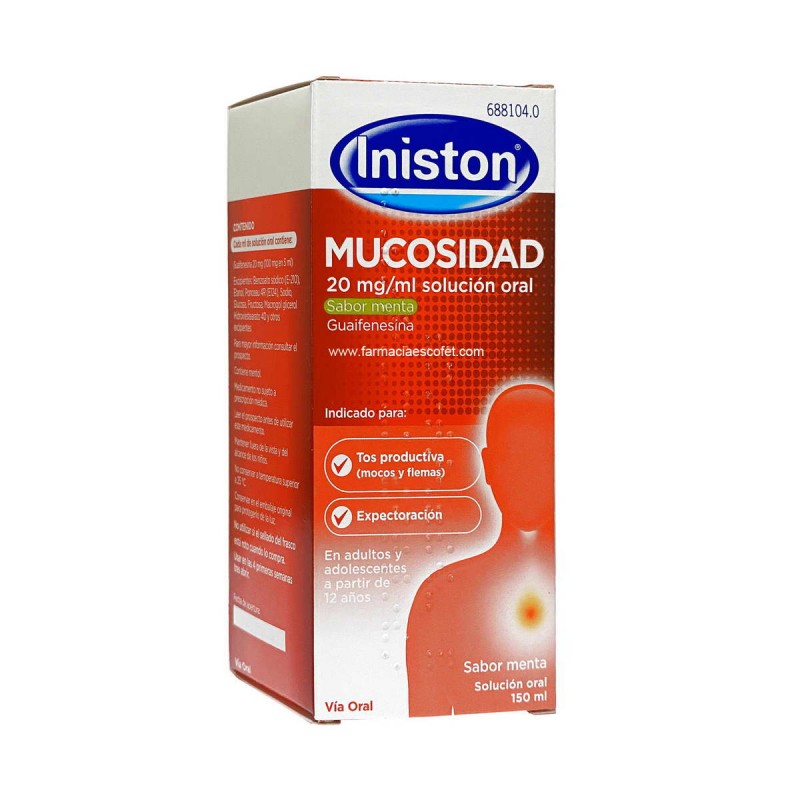



It helps relieve chesty cough (cough) by reducing phlegm (mucus) and facilitating expectoration
What is Inistón Mucosidad and what is it used for?
Inistón Mucosidad contains guaifenesin, which is a type of medicine called an expectorant.
Helps relieve chest cough (productive cough) by reducing phlegm (mucus), facilitating expectoration and making the cough more productive. The medicine is indicated for adults and adolescents from 12 years of age.
You should see your doctor if you get worse or if you do not get better after 7 days.
How to take Inistón Mucosidad
Follow exactly the instructions for administration of this medicine described in this leaflet or those indicated by your doctor or pharmacist. If in doubt, ask your doctor or pharmacist again.
- This solution is for oral use only
- Do not use more than the dose established below:
Adults and adolescents from 12 years
Take 1 measure of 10 ml, 4 times a day using the graduated mark of the measuring cup.
Seniors
Same as for adults
Children under 12 years
This medication is for ages 12 and older.
Patients with liver or kidney problems
Consult a doctor or pharmacist
Do not take more than 4 doses (40 ml) in 24 hours
Consult a doctor if symptoms worsen or do not improve after 7 days of treatment
If you take more Inistón Mucosidad than you should
If you take too much medicine, contact a doctor or go to your nearest Health Center, taking this leaflet and the medicine container with you.
If you take too much medicine, you can develop kidney stones.
Symptoms may include:
- Upset stomach, nausea and drowsiness.
In case of overdose or accidental ingestion, immediately consult your doctor or pharmacist or call the Toxicological Information Service, telephone: 91.5620420, indicating the medication and the amount ingested.
If you forget to take Inistón Mucosidad
You should take this medication only when you need it, following the dosage instructions carefully. If you forget to take a dose, take the next dose when it is due. Do not take a double dose to make up for a forgotten dose. Do not take more than 4 doses (40 ml) in 24 hours.
Composition of Iniston Mucosidad
The active substance is Guaifenesin. Each ml of oral solution contains 20 mg of guaifenesin (each 10 ml of oral solution contains 200 mg of guaifenesin)
The other ingredients (excipients) are: xanthan gum, sodium chloride, sodium saccharin, ammonium glycyrrhizate, citric acid, sodium citrate, macrogol glycerol hydroxystearate-40, levomenthol, raspberry flavor (includes ethanol), glycerol, macrogol 1500, propylene glycol (E1520 ), ethanol, purified water, sodium benzoate (E211), Ponceau 4R (E124), caramel (E150).
LEAFLET